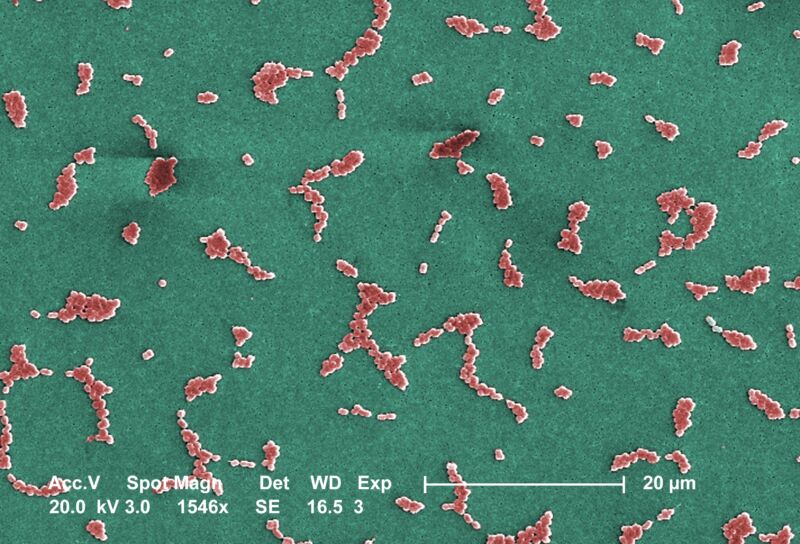Experimental antibiotic kills deadly superbug, opens whole new class of drugs

Enlarge / This digitally colorized scanning electron microscopic (SEM) depicts a number of clusters of aerobic, Gram-negative, non-motile, Acinetobacter baumannii bacteria, under a relatively low magnification of 1,546X
A new experimental antibiotic can handily knock off one of the world's most notoriously drug-resistant and deadly bacteria -in lab dishes and mice, at least. It does so with a never-before-seen method, cracking open an entirely new class of drugs that could yield more desperately needed new therapies for fighting drug-resistant infections.
The findings appeared this week in a pair of papers published in Nature, which lay out the extensive drug development work conducted by researchers at Harvard University and the Swiss-based pharmaceutical company Roche.
In an accompanying commentary, chemists Morgan Gugger and Paul Hergenrother of the University of Illinois at Urbana-Champaign discussed the findings with optimism, noting that it has been more than 50 years since the Food and Drug Administration has approved a new class of antibiotics against the category of bacteria the drug targets: Gram-negative bacteria. This category-which includes gut pathogens such as E. coli, Salmonella, Shigella, and the bacteria that cause chlamydia, the bubonic plague, gonorrhea, whooping cough, cholera, and typhoid, to name a few-is extraordinarily challenging to kill because it's defined by having a complex membrane structure that blocks most drugs, and it's good at accumulating other drug-resistance strategies